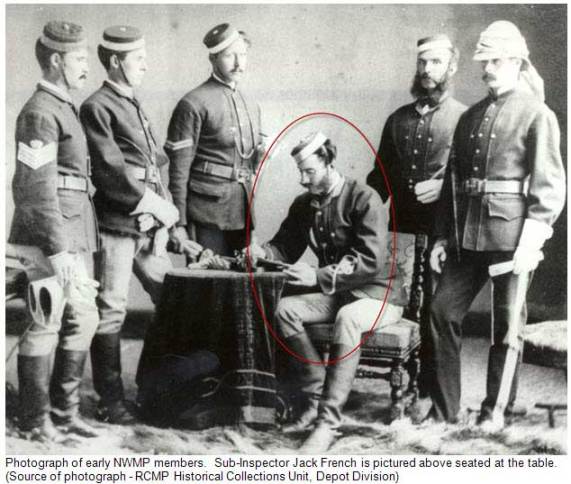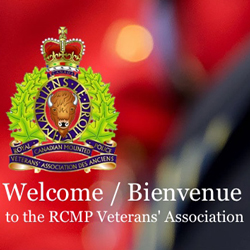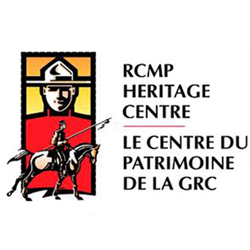Cpl. John French
Corporal John Poyntz French’s uncle was George French (first Commissioner of the Force) and his father was Inspector Jack French (Reg. O.19) who display gallantry and bravery on the last day of the Battle of Batoche.
Young John French endeavoured to follow in the family’s military tradition.
Although his service in the Force was short, John French went on to also distinguish himself in the South African Constabulary and in the Princess Patricia’s Canadian Light Infantry during World War I.
EARLY YEARS
John Poyntz French was born April 1876 at Fort Pelly Saskatchewan.
According to John French, Major General George French (1st Commissioner of the Force) came to Canada in the 1860s. “At the time, he was a Captain in the Royal Artillery and was sent to Canada, in reply to a request of Sir John A. MacDonald, for an officer to come over here (to Canada) and organize (the Canadian) artillery. He was put in command of the artillery at Kingston and lived in the Tete du Pont Barrack. The Royal Artillery of that day is now the Royal Canadian Horse Artillery. In 1873, he was appointed to organize and command the North-West Mounted Police. He sent for his brother, Captain John French, my father who had only been married a short time before. Jack French brought my mother with him.
My sister (Tannis French) was born in June 1874 in Toronto. She is said to be, and I believe correctly so, the first child born in the Force. My mother and aunt (Commissioner’s wife – Mrs. Innis were married in Kingston) joined their husbands in Winnipeg. Both wives took part in the March West.
I was born at Fort Pelly in Saskatchewan in April 1876 and Sam Steele told me that I was one of the first purely white child born in Saskatchewan. My brother, Frank H. French was born at Fort Qu’Appelle in 1884.”[1]
Prior to coming to Canada, John ‘Jack’ French had served 16 years in the Irish Militia. His wife was the daughter of “Poyntz Chapman Judge of Gageborough House King’s County Ireland and grand-daughter of Colonel Poyntz Judge of the 13th Light Dragoons who was killed at Balaclava in the charge of the Light Brigade.”[2]
JOINS THE FORCE
On March 28, 1874, Jack French was enlisted in the North-West Mounted Police and was appointed to the rank of Sub-Inspector. For the March West, Jack French was assigned to “D” Troop and was under the Command of Insp. James Walsh (Reg. O.7) and the Troop Sergeant Major was T.W.S. Miles.
After the March West had been completed, Commissioner George French travelled to Fort Benton Montana and forwarded a message to the Canadian Government to advise that the March West had been completed. He also outlined the situation at Fort Whoop-up. Subsequent to his messages, Commissioner French received two telegrams from the Canadian Government. The directions for Commissioner French were to “leave a large force in the vicinity of the Belly River and to return to his new headquarters located near Fort Pelly, the proposed seat of government for the Northwest Territories. On September 29th, with “D” and “E” Divisions (Troops), Commissioner French began the return march of more than 800 miles to Fort Pelly.”
Jack French later served at Swan River, Fort Battleford and Fort Walsh. “During 1875, (Jack) French was the center of allegations of cruelty towards his men as appeared in newspaper and letters. In response to these some thirty-eight of his men sent an open letter to the press reflecting their stories. It appeared the story originated from an incident when (Jack) French and his “D” Division Troop were enroute from Winnipeg to Swan River. A member under arrest for disciplinary infractions was made to walk along side a horse while handcuffed to the stirrup. He somehow received a minor injury. French on instructions from the Minister of Justice on reading about the incident was reprimanded for his actions in ordering the handcuffs on the member.
In 1876. French was found to have been willfully derelict of his duty in his participation of the transportation of liquor to the Wagon Master enroute to Swan River.”[3]
On July 1, 1883, Jack French left the Force and took up farming in the Fort Qu’Appelle area.
With the outbreak of the North-West Rebellion, Jack French organized and commanded a group called the “French Scout.” In so doing, he rejoined the Canadian Militia. At the battle of Batoche, Jack French repeatedly displayed acts of bravery. “It was at Batoche, the last stand made by the half-breeds, and (Jack) French was fighting in the front ranks of the Police when he saw Constable Cook fall. The wounded man lay out in the open, but French took the risk of being ‘potted.’ And running up to the prostrate figure he lifted Cook in his arms to carry him back to safety. To the honour of the half-breeds and their Indian allies be it said that one and all ceased firing for the moment, and French reached the lines unscathed. It is sad to have to record that not long after his heroic rescue the brave fellow was killed.”[4]
On May 12, 1885 at Batoche, Jack French “dashed forward to the house of Xavier Letendre, entered, rushed upstairs and threw a window open, from which to fire upon the fleeing enemy. A solitary halfbreed, standing a the courner of a hose nearby, raised his rifle and took deliberate aim. The gallant ex-policeman received a bullet through the heart.”[5]
“An old half-breed sniper, Donald Ross, shot and killed him (Jack French) whereupon a number of troops opened fire and killed Ross.”[6]
Following in the footsteps of his late father (Jack French) and uncle (George French), John Poyntz French joined the North-West Mounted Police on April 9, 1894 at the age of 18 years. John French was well educated and could speak English, French and several Indian dialects.
According to John French “I joined the NWMP at Regina in April 1894 … was transferred to “E” Division, Calgary in 1894. During my time in “E” Division, I was on detachments at Cleichen, High River, Canmore and Banff.
In the winter of 1897-98, I was transferred to the Yukon and stationed for a short time in Skagway then onto Summit of White Pass and in spring of ’98 went to Bennett under Supt. Same Steele. Then to Tagish under Supt. Wood.”[7]
Frank French further outlined that he “ punched dogs in winter and paddled canoes in summer carrying the mails and doing my bit to keep law and order amongst thousands with gold fever.”[8]
On January 17, 1899, Major-General George French (1st Commissioner of the Force and brother to Jack French) wrote a letter to Fred White (Comptroller of the NWMP) asking that Frank French be given a Commission in the NWMP. George French made reference to a military tradition that if an officer was killed in battle then his son would receive a Commission. A similar letter was received from the Governor General of Canada also forwarded a similar appeal to Fred White.
EXPANDS HIS EXPERIENCES
On January 27, 1899, Fred White wrote to Sir Wilfrid Laurier (Prime Minister of Canada) about the petitions to have Constable Frank French Commissioned to the rank of Inspector. In his letter, Fred White stated “he (Frank French) is hardly ripe for a Commission, but Commissioner Herchmer has promised to make a Non-Commissioned Officer of him, which will be a stepping stone to something better.”[9]
On November 16, 1899, Frank was stationed in Regina and was promoted to the rank of Corporal.
On January 1, 1900, Frank French resigned from the Force and accepted a Commission as a Lieutenant in the 1st Canadian Mounted Rifles and attached to “D” Company. With the creation of the South African Constabulary, Frank French accepted a Commission as a Lieutenant and commanded a troop of 100 men under the general command of Lord Baden-Powell. He was later promoted to the rank of Captain. After the Boer War, many other NWMP members accepted positions in the South African Constabulary. The photograph below illustrates two ex-NWMP members in the South African Constabulary in 1903.
In 1906, Frank French resigned his position with the South African Constabulary and returned to Canada. Shortly after in Canada, he applied to rejoin the Force as a Commissioned Officer but his offer was not accepted.
With the outbreak of World War I, he joined the Princess Patricia’s Canadian Light Infantry and was awarded a Commission as a Lieutenant in 1915. Frank French “was appointed to receive the (regimental) colours that Princess Patricia made for the Battalion and carried them to England. Active service kept him busy and in June, 1916, he was in the fight at Mount Sorrel, near Ypres, and became a Major. In 1918, he received his Lieut.-Colonelcy. Jack French was the only officer in the battalion out of thirty-two who escaped unhurt (Battle of Vimy Ridge), with some ninety men out of about eight hundred and fifty who went into the line but a day or so before. He returned to Canada in August 1919 and was at Burlington Hospital for three years or thereabout, owing to gas at Vimy.”[10]
Based on his military service, Lt. Colonel Frank P. French received the following military medals:
– Distinguished Service Order for his actions at Vimy Ridge;
– Queen’s South African Medal – 5 bars;
– King’s South African Medal – two bars;
– 1915 Star (WW I); and
– General Service & Victory Medal (WW I).
On October 2, 1954, John French passed away at Kingston Ontario. He was survived by his Inspector F.H. French.
[1] French, John Poyntz – letter to Commissioner Stuart Taylor Wood dated March 22, 1941.
[2] Steele, Flora MacDonald – “South African Constabulary” article which appeared in the 1941 edition of the Scarlet & Gold magazine (page 23)
[3] Library Archives Canada – NWMP Personal File of Frank French – O.19 – page 1.
[4] Haydon, A. L. – “The Riders of the Plain: A Records of the Royal North-West Mounted Police in Canada 1873 – 1918” – Toronto: The Copp Clarke Co. (1923) (page 252)
[5] Turner, John Peter – “The North-West Mounted Police” Volume II -Ottawa: Kings Printers (Page 186)
[6] Light, Douglas W. – “Footprints In The Dust” – North Battleford: Turner-Warwick Publications (1987) (page 441)
[7] French, John Poyntz – letter to Commissioner Stuart Taylor Wood dated March 22, 1941.
[8] Steele, Flora MacDonald – “South African Constabulary” article which appeared in the 1941 edition of the Scarlet & Gold magazine (page 23)
[9] Library Archives Canada – NWMP Personal File of Frank French
[10] French Steele, Flora MacDonald – “South African Constabulary” article which appeared in the 1941 edition of the Scarlet & Gold magazine (page 24)
[11] Steele, Flora MacDonald – “South African Constabulary” article which appeared in the 1941 edition of the Scarlet & Gold magazine (page 23)


 November 11, 2012
November 11, 2012 












